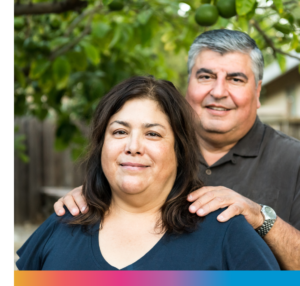By Zena Smith, Senior Vice President of Clinical Trial Recruitment
 The annual DIA global conference in San Diego, CA next week continues to drive learnings and improvements in Diversity, Equity and Inclusion (DEI) efforts across the industry with important operational discussions around improving representation of marginalized populations in clinical trials. And we look forward to attending to gain and share knowledge on how to increase representation for better health outcomes for all.
The annual DIA global conference in San Diego, CA next week continues to drive learnings and improvements in Diversity, Equity and Inclusion (DEI) efforts across the industry with important operational discussions around improving representation of marginalized populations in clinical trials. And we look forward to attending to gain and share knowledge on how to increase representation for better health outcomes for all.
We are more than a year into the FDA’s guidance for clinical trial sponsors and investigators to develop plans to enroll more participants from underrepresented populations in the United States into clinical trials. As our team gets ready to attend DIA to participate in these discussions, we thought it was important to revisit this guidance as a way to continue to amplify awareness on the importance of improving the health of racial and ethnic minority populations.
To date, clinical studies continue to fall short of diverse representation:
- African American/Black patients make up 13.4% of the population but only 5% of trial participants
- Hispanic/Latino patients make up 18.1% of the population but only 1% of trial participants
- Non-Hispanic white patients make up 60% of the population but over 77% of trial participants
The lack of diversity in clinical trials isn’t a new issue, but it is still concerning as approximately 20% of drugs have different effects depending on a patient’s ethnic diversity. These differing effects are attributed to polymorphisms in genes encoding drug-metabolizing enzymes (DMEs) and drug transporters. Polymorphisms directly influence pharmacokinetics and pharmacogenomics, and it is important to understand the differences in genetic variants of DMEs and transporters that determine differences in drug exposure, efficacy, and safety between ethnicities.
“[Talking about clinical trials] I feel like for older Latinos, they are very weary because of things that happened in the past, with using them as guinea pigs and not being told what was being done to them. I think my grandma and mom, they go to smaller clinics that are in their neighborhood, and they have more trust within those clinics and have a good relationship with those doctors.”
– Hispanic participant, Gen Z
What does that mean for diversifying clinical trials?
The diversity plan draft guidance offers a framework for the FDA to engage stakeholders on a strategy to implement an enrollment plan and ensure trials enroll diverse populations. The draft guidance focuses on specifically naming the inclusion of underrepresented racial and ethnic populations in the United States, such as Black or African American, Hispanic/Latino, Indigenous and Native American, Asian, Native Hawaiian, Other Pacific Islander, and other persons of color. The draft guidance also advises sponsors to seek diversity in clinical trial enrollment beyond populations defined by demographics such as sex, gender identity, age, socioeconomic status, disability, pregnancy status, lactation status, and comorbidity.
However, despite previous sets of recommendations to improve clinical trial diversity*, there has been little, if any, improvement in increasing the number of clinical trials that adequately account for diverse populations or diverse data sets. In a 2022 study, researchers analyzed records from all United States clinical trials registered on ClinicalTrials.gov from March 2000 to March 2020. They found that among the 20,692 US-based trials with reported results, only 43% reported any race/ethnicity data.
What are the challenges?
One of the main reasons it is challenging to significantly improve ethnic and racial diversity and representation in clinical trials is the lack of enforceability in the guidance. Accountability needs to be included in the current draft and previously finalized guidance as there are no consequences if the guidance is not followed. This lack of enforceability means there is no real incentive to take steps to change and improve representation in clinical studies, thus perpetuating the gap in health inequity among minority populations. Achieving greater diversity in clinical trials equates to the development of better, safer and more effective ways to fight diseases that often disproportionately impact diverse communities.
At Continuum Clinical, we take a collaborative approach to help sponsors draft innovative and creative diversity plans to achieve enrollment goals, exceed diversity targets and, alongside our clients, help close the gap on health inequity. We hope you will join us on this journey.
*A breakdown of the current and previous guidance on Diversity or Diversity Data in Clinical Trials is displayed below.
| Guidance Title | Topic | Draft/Final | Issue Date |
| Diversity Plans to Improve Enrollment of Participants From Underrepresented Racial and Ethnic Populations in Clinical Trials; Draft Guidance for Industry; Availability: Draft Guidance for Industry | Draft | 04/13/2022 | |
| Enhancing the Diversity of Clinical Trial Populations – Eligibility Criteria, Enrollment Practices, and Trial Designs | Design, Diversity, Ethics Committee (EC), Ethnicity, Gender, Good Clinical Practices (GCP), Human Subjects Protection (HSP) | Final | 11/09/2020 |
| Evaluation and Reporting of Age-, Race-, and Ethnicity-Specific Data in Medical Device Clinical Studies | Demographic, Diversity, Ethnicity, Gender, Investigation, Medical Device, Pediatric | Final | 09/12/2017 |
| Collection of Race and Ethnicity Data in Clinical Trials | Demographic, Ethnicity, Race | Final | 10/26/2016 |
Zena Smith is a Senior Vice President of Clinical Trial Recruitment at Continuum Clinical, a full-service clinical trial patient recruitment and retention organization for the pharmaceutical, biotech and broader life science industries.
